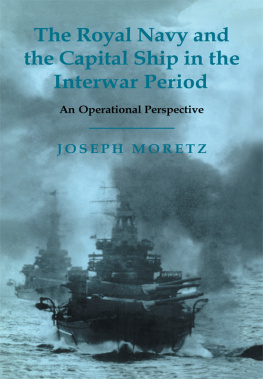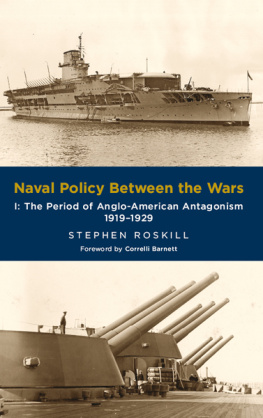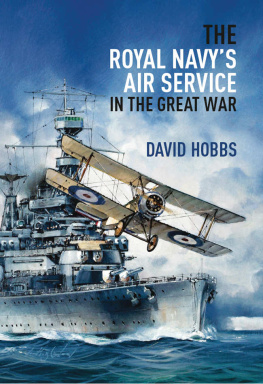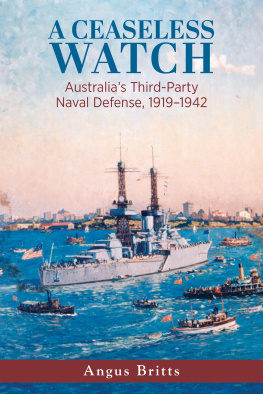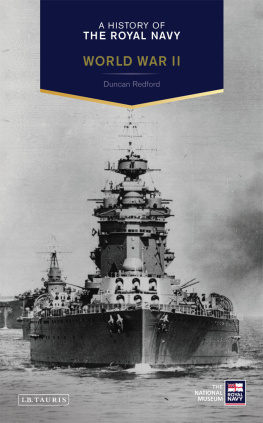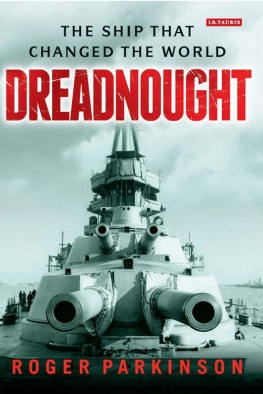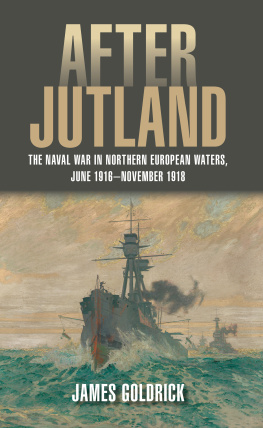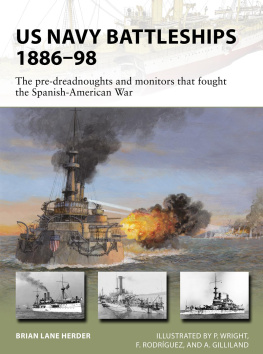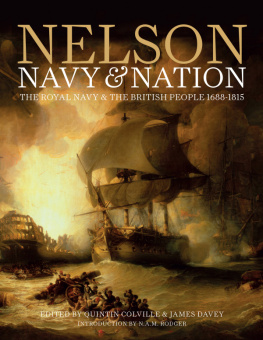THE ROYAL NAVY AND THE CAPITAL SHIP IN THE INTERWAR PERIOD
CASS SERIES: NAVAL POLICY AND HISTORY
(Series Editor: Geoffrey Till)
ISSN 13669478
This series consists primarily of original manuscripts by research scholars in the general area of naval policy and history, without national or chronological limitations. It will from time to time also include collections of important articles as well as reprints of classic works.
1. Austro-Hungarian Naval Policy, 19041914
Milan N. Vego
2. Far-Flung Lines: Studies in Imperial Defence in Honour of Donald Mackenzie Schurman
Edited by Keith Neilson and Greg Kennedy
3. Maritime Strategy and Continental Wars
Rear Admiral Raja Menon
4. The Royal Navy and German Naval Disarmament 19421947
Chris Madsen
5. Naval Strategy and Operations in Narrow Seas
Milan N. Vego
6. The Pen and Ink Sailor: Charles Middleton and the King's Navy, 17781813
John E. Talbott
7. The Italian Navy and Fascist Expansionism, 19351940
Robert Mallett
8. The Merchant Marine and International Affairs, 18501950
Edited by Greg Kennedy
9. Naval Strategy in Northeast Asia: Geo-strategic Goals, Policies and Prospects
Duk-Ki Kim
10. Naval Policy and Strategy in the Mediterranean Sea: Past, Present and Future
Edited by John B. Hattendorf
11. Stalins Ocean-going Fleet: Soviet Naval Strategy and Shipbuilding Programmes,19351953
Jrgen Rohwer and Mikhail S. Monakov
12. Imperial Defence, 18681887
Donald Mackenzie Schurman; edited by John Beeler
13. Technology and Naval Combat in the Twentieth Century and Beyo
Edited by Phillips Payson OBrien
14. The Royal Navy and Nuclear Weapons
Richard Moore
15. The Royal Navy and the Capital Ship in the Interwar Period: An Operational Perspective
Joseph Moretz
16. Chinese Grand Strategy and Maritime Power
Thomas M. Kane
First published 2002 in Great Britain by
Routledge
2 Park Square, Milton Park, Abingdon, Oxon, 0X14 4RN
270 Madison Ave, New York NY 10016
Transferred to Digital Printing 2008
Website: www.routledge.com
Copyright 2002 J. Moretz
British Library Cataloguing in Publication Data
Moretz, Joseph
The Royal Navy and the capital ship in the interwar period: an operational perspective. - (Naval policy and history)
1. Great Britain. Royal Navy 2. Battleships - Great Britain -History 3. Battle cruisers - Great Britain - History
I. Title
623.82520941
ISBN 0-7146-5196-6 (cloth)
ISSN 1366-9478
Library of Congress Cataloging-in-Publication Data
Moretz, Joseph, 1956
The Royal Navy and the capital ship in the interwar period: an operational perspective / Joseph Moretz.
p. cm. - (Cass series - naval policy and history, ISSN 13669478)
Includes bibliographical references and index.
ISBN 0-7146-5196-6 (cloth)
1. Great Britain. Royal Navy - History - 20th century. 2.Battleships Great Britain. 3. Battle cruisers Great Britain. I. Title. II. Series.
VA454 .M813 2001
359.8352094109042 - dc21
2001032490
All rights reserved. No part of this publication may be reproduced, stored in or introduced into a retrieval system, or transmitted, in any form or by any means, electronic, mechanical, photocopying, recording or otherwise without the prior written permission of the publishers of this book.
Typeset by Regent Typesetting
Publishers Note
The publisher has gone to great lengths to ensure the quality of this reprint but points out that some imperfections in the original may be apparent.
Series Editors Preface
At times like this, when the world seems to be moving into an era in which there are many risks but few out-and-out adversaries and defence budgets are coming under increasing strain, there has been something of a revival of interest in the so-called interwar period between the end of the First World War and the beginning of the Second. This interest is due less to the hope that scholarly investigations of the issues then confronting defence planners will somehow provide answers for their contemporary successors, than that they will help frame the questions that should be asked. This volume, written by someone actively engaged in todays naval business, demonstrates the value of such open-minded enquiry very clearly.
Joseph Moretz concentrates his attention on the role and perceived importance of the battleship. This is a subject that has been covered many times before, but what is completely new about this is its focus on the operational level of war. Neither the nitty-gritty tactical business of battleship construction, nor the role of navies at the grand-strategic level but a business-like concentration on what battleships actually did at this time and what they were expected to do in war. The author has uncovered a great deal of new information, which demonstrates the extent to which the battleship remained at the heart of naval policy and planning concerns in this period. Thinking about the battleship both helped determine, and in due course reflected, policy on virtually all other aspects of naval policy naval aviation, the submarine service, arms-control policy, the fleet con-struction programme and, of course, strategy and tactics. The point is that the battleship needs to be put into context, to be seen more as the most important part of a balanced battlefleet, and less as a weapon system in its own right, than has often been the case in previous analyses. The role of the battleship is therefore a huge topic but one which needs to be reviewed as a whole.
In so doing, Joseph Moretz addresses one of the great issues in military history the question of military conservatism. He makes a major contribution to an evolving school now reacting against the once near-universal view that dunder-headed military types habitually prepare to re-fight the last war and are institutionally, even congenitally, unable to respond to new technological challenges effectively. And this too is a conclusion with much contemporary relevance.
GEOFFREY TILL
Series Editor
Acknowledgements
This work is based on a dissertation presented to the University of London and could not have been written without the support rendered by many during the last five years. To Captain Joseph P. Keane, United States Navy, I am especially grateful for his forbearance which allowed me to pursue my research whilst balancing the demands of my official duties. The assistance I have enjoyed at a number of archives has made the research a labour of love. To the staffs of the British Library, the Public Record Office, the Liddell Hart Centre for Military Archives, the Churchill Archives Centre, and the Imperial Museum I owe much. To Messrs Clive Powell and Alan Giddings, of the National Maritime Museum, sincerest thanks are extended for providing excellent support and encouragement.
I am grateful to the following for permission to quote from the collections noted: the Trustees of the Liddell Hart Centre for Military Archives for the papers of Commander Sidney Armstrong, Captain John Beaufoy-Brown, Admiral Sir Charles Dickens, Lieutenant Commander Thomas Metters, and Sir Basil Liddell Hart; the National Maritime Museum for the papers of Earl Beatty, Sir Geoffrey Blake, Lord Chatfield, the Elkins and Fremantle Papers, the Madden Papers, the Oliver Papers, the Oliver-Bellasis Papers, the Peachey and Richmond Papers, and the Tennant Papers. To the Trustees of the Imperial War Museum acknowledgement is made for access to the holdings in its care and to Ms Betsy Barnard for the papers of Vice Admiral Sir Geoffrey Barnard, to Mr Christopher Bayne for the papers of Captain Ronald Bayne, to Ms Susan Burton for the papers of Commander H. C. Burton, to Sir Peter Cazalet for the papers of his father, Vice Admiral Sir Peter Cazalet, to Brigadier G. L. D. Duckworth, CBE for the papers of Captain Arthur Duckworth, to Mr T. Dumas for the papers of Rear Admiral Philip Dumas, to Mrs Judith Ellis for the papers of Surgeon Captain Gordon Ellis, to Mr Melville Haggard for the papers of Admiral Sir Vernon Haggard, to Ms Gillian Hammill for the papers of Captain John Hammill, to Lieutenant Commander James F. King for the papers of Captain Henry King, to Ms Jean Lambert for the papers of Captain Geoffrey Lambert, to Lady Huntingfield for the papers of Rear Admiral Montague Legge, to the Lord Brabourne for papers of the Marquess of Milford Haven, to Commander Richard A. B. Phillimore for the papers of his father Admiral Sir Richard Phillimore, to Mr Roger Trevor for the papers of Commander Ronald Trevor, and to Mrs Audrey Wintour for the papers of Captain Charles Wintour.

